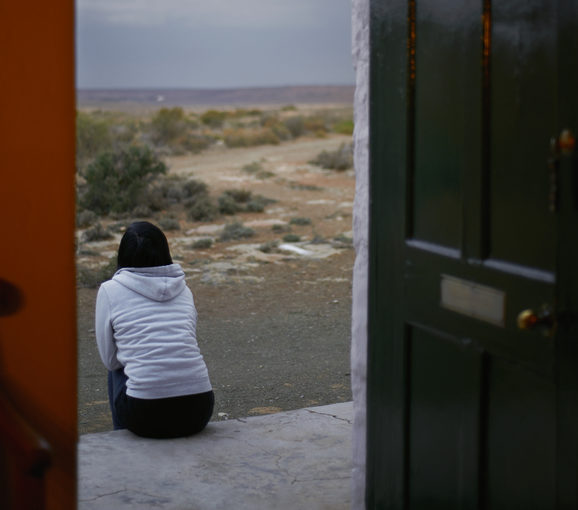Traumatic events can take a significant toll on a person’s mental health. While some people have short-term responses to trauma, others develop long-term mental health symptoms that can lead to a diagnosis of post-traumatic stress disorder (PTSD).
Survivor’s guilt (also referred to as survivor guilt, survivor syndrome, and survivor disorder) occurs when a person develops feelings of guilt because they survived a life-threatening event when others did not. Survivors may question why they survived while others lost their lives, and may wonder if there was something they could have done to prevent others’ demise. Survivor’s guilt may occur in relation to trauma or the loss of life and is a symptom of post-traumatic stress disorder.

People who experience survivor’s guilt may include:
- War veterans
- First responders
- 9/11 survivors
- Holocaust survivors
- Cancer survivors
- Natural disaster survivors
- Car accident survivors
- Witnesses to a traumatic event
- Family members of those with a fatal hereditary condition
Not everyone who witnesses trauma experiences survivor’s guilt, but research suggests that feelings of guilt are common in response to trauma.
According to the National Alliance of Mental Health (NAMI), PTSD symptoms often coexist with other mental disorders such as substance use disorders, major depression, and anxiety disorder.
Symptoms of Survivor’s Guilt
Individuals who experience trauma may develop a sense of guilt toward:
- Escaping death when others did not
- What they did during the event
- What they did not do during the event
People struggling with survivor’s guilt often experience other symptoms of PTSD, such as:
- Flashbacks of the event
- Irritability and anger
- Low self-esteem
- Feelings of hopelessness
- Fear and confusion
- Difficulty sleeping
- Social isolation
- Thoughts of suicide or suicidal behaviors
- Difficulties functioning in daily life
If you or someone you know is having thoughts of suicide, a phone call to a prevention hotline can help. In the United States, The National Suicide Prevention Lifeline is available 24 hours a day at 1-800-273-8255, and the NAMI Helpline can be reached Monday through Friday from 10 a.m. to 6 p.m. ET at 1-800-950-NAMI (6264).
Causes of Survivor’s Guilt
Survivor’s guilt occurs in people who have witnessed traumatic events, but not everyone who lives through a trauma develops a sense of guilt. Risk factors that increase an individual’s risk of developing guilt after surviving trauma include:
- A history of trauma, such as abuse
- Poor coping skills, especially among young people and adolescent-aged individuals
- Other mental health conditions, such as anxiety disorder or major depression
- A family history of psychiatric disorders
- Lack of support from best friends and family members
- Alcohol or drug use
According to a 2015 study, survivors can develop false beliefs about their role in an event, which can also lead to feelings of guilt. False beliefs can include distorted ideas about:
- Their ability to predict or prevent an outcome
- Their role in causing a negative outcome
- Wrongdoing on their part
These beliefs can increase the severity of PTSD symptoms, especially feelings of guilt and distress.

Find a Therapist to Help With Survivor's Guilt
Get personalized matchesWhat should you do if you’re struggling with survivor’s guilt?
Survivor’s guilt can feel overwhelming, but it’s common to develop guilt after surviving a traumatic event. It’s essential to acknowledge your feelings and seek help if your feelings become too difficult to manage. If you’re struggling with excessive feelings of guilt, the following options can help you cope.
- Therapy: Working with a mental health professional or social worker who specializes in trauma can help you learn to accept your feelings, combat stigma, and process the guilt that accompanies trauma. As the primary treatment for PTSD, therapy can help survivors learn different ways to regain control of their lives and experience relief from symptoms.
- Connect with others: Reaching out to family members and friends can allow you to share your feelings and thoughts toward the event. If your loved ones don’t understand your feelings, consider searching for a support group. Groups like NAMI Peer-to-Peer, NAMI Parents, and NAMI Homefront provide mental health support understanding from people who relate to your experiences.
- Practice self-care: Witnessing a life-threatening event is stressful, and it can be easy to overlook your mental and physical health if you’re having a hard time. Survivors can benefit from practicing self-care, such as creating art, reading, and journaling. It’s also essential to get enough sleep, maintain a balanced diet, and exercise regularly.
- Mindfulness: Practicing mindfulness techniques can be especially valuable for those struggling with flashbacks or periods of intense emotions. Grounding techniques, which focus on the breath, can help immediately relax you and turn your attention away from negative thoughts and feelings. The NAMI Hearts and Minds educational program promotes sound mind and body practices among individuals with mental illnesses.
- Help others: Individuals struggling with feelings of guilt may feel better if they help others. Educating others about their experience, volunteering at a charity, or lending support to others can help alleviate feelings of guilt and distress.
What should you look for in a therapist?
Any trauma—from personal trauma to a global health crisis—can take a significant toll on mental health.
If you’re experiencing a mental health crisis, consider using WithTherapy to find a therapist. Survivor’s guilt can reduce your quality of life, but it can also pose serious risks, especially if other mental health problems are present.
WithTherapy connects each patient to a personalized shortlist of mental health professionals and uses science and research to match personal preferences. We’ll connect you with a therapist you feel comfortable with, regardless of your preferences and requirements. Working with a qualified mental health expert can help you develop coping strategies, learn how to manage difficult emotions, and improve your mental well-being.
Find a Therapist to Help With Survivor's Guilt




